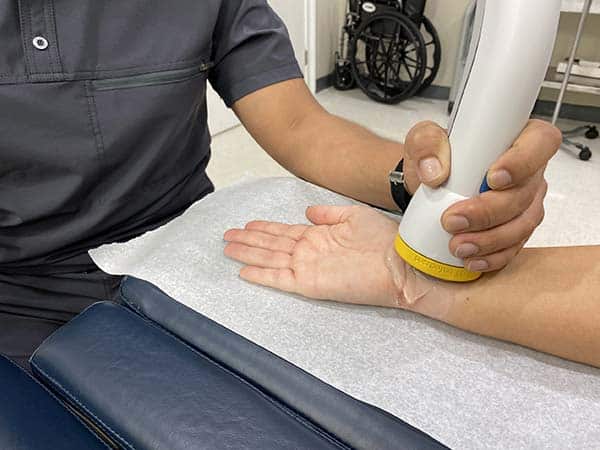
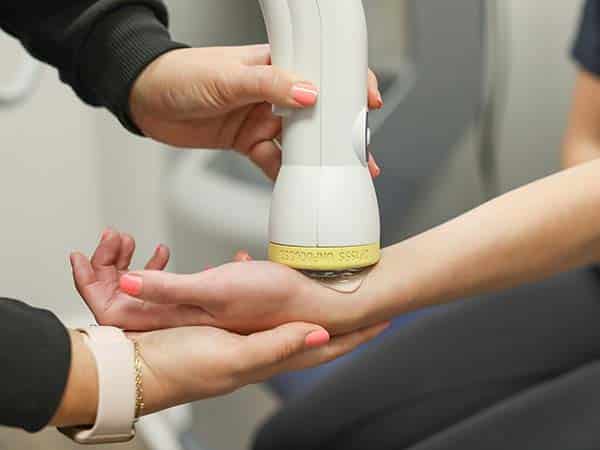
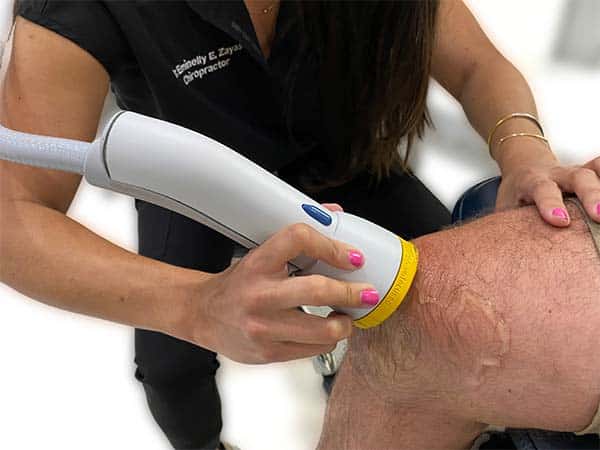
From serious sports injuries causing tissue damage to bone issues and stiffness that comes with age, living with pain is, well, a pain. But it's more than that - it's a stressful, often upsetting way to get through your day, month, and year. Have you ever tried to get out of bed with sore, stiff knees? Most folks would rather just get back in bed. Think you might try exercising with plantar fasciitis? Don't plan on running far or doing cardio for very long. Torn rotator cuff? Without proper treatment, your life might not ever be the same.
Living with pain and the inevitable issues that come with age can seriously affect your wellbeing and happiness. Sure, you could wake up every morning and rely on addicting medications to help you move. Or, you could risk further injury and damage with invasive surgeries that require long periods of recovery and downtime. But those can't be the only two options for treatment, can they?
Fortunately, a new, natural, non-invasive treatment for pain is revolutionizing the medical industry and transforming people's lives. It's giving athletes, average folks, and people of a certain age a reason to be hopeful. It's called Softwave therapy, and unlike many fly-by-night medications and sketchy treatments, it's backed by science and provided by Elite Healthcare Physical Medicine.
If you're barely making it through the day suffering from chronic pain, this FDA-approved drug-free treatment may be for you. Softwave therapy has already been used by thousands of people around the country living with issues like shoulder pain, knee pain, and plantar fasciitis. You could be next.
Though its popularity has only grown in recent years, Softwave therapy - also known as shockwave therapy - has been around for years. In fact, the first systematic study into the benefits of shockwave therapy took place way back in 1950. So, what is Softwave therapy?
Softwave therapy is a method of treatment that works incredibly well for mobility rehab, pain relief, and full-body recovery, usually from chronic pain or injuries. Softwave therapy uses a device emitting low-energy soundwaves that target a patient's injured area. These low-intensity waves boost blood flow and kickstart your body's natural healing processes, relieving long-term pain and helping your body to heal a wide range of injuries and conditions.
The main targets in the body include bones, tendons, and other soft tissues, which are encouraged to regenerate and repair via the shockwaves. Often, shockwave therapy is used in conjunction with other non-invasive treatments like chiropractic care, which we offer at Elite Healthcare Physical Medicine. The results are often incredible, leaving patients wondering why they never tried Softwave therapy before.
Softwave therapy works especially well for:

Better Blood Flow

Collagen Stimulation

Reducing Inflammation

Kickstarting cell growth and healing factors

Breaking down build-ups of calcium
With FDA clearance, little-to-no side effects, and quick application time, Softwave therapy is a welcome alternative for people suffering from pain. Who wants to spend weeks or months recovering from a surgery that might not even work? Likewise, who would want to become dependent on over-the-counter or, even worse, prescription pain meds? Living a life of addiction is a road nobody wants to go down.
Softwave therapy represents a revolution in non-invasive pain treatment; best of all, it's highly effective. Independent studies prove that shockwave therapy helps with pain. 65-91% of patients using shockwave therapy experienced real-deal improvements in damaged muscle and bone tissue, solving their mobility problems and drastically reducing pain. It almost sounds too good to be true, but as many patients at Elite Healthcare Physical Medicine will tell you - it isn't.
Book AppointmentSome of the most common conditions that Softwave therapy treats include:
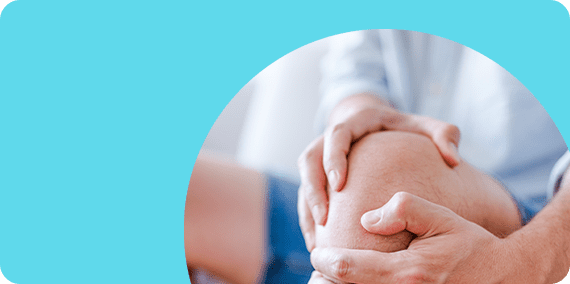
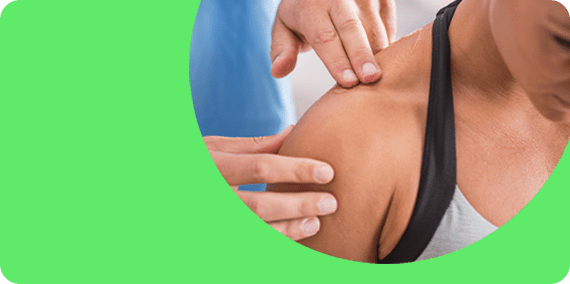

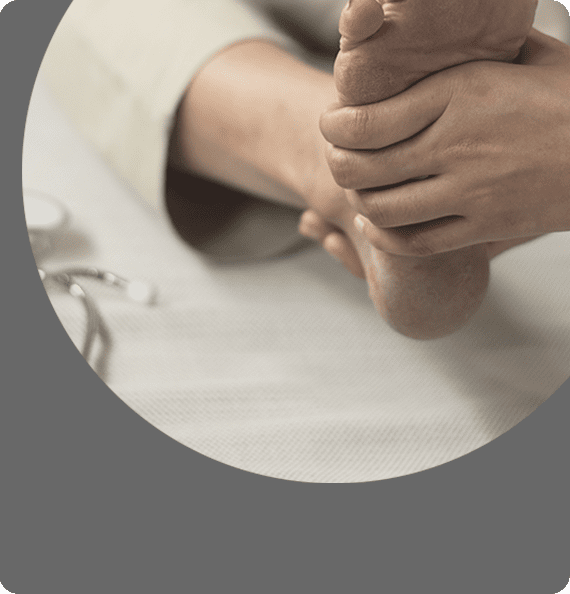

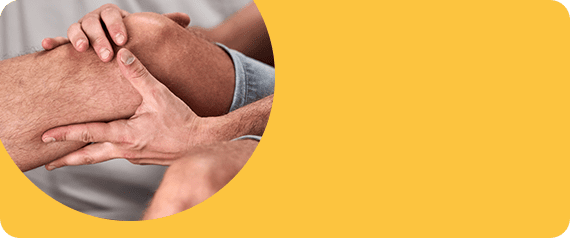
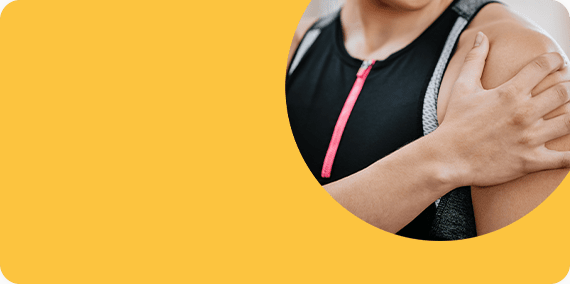
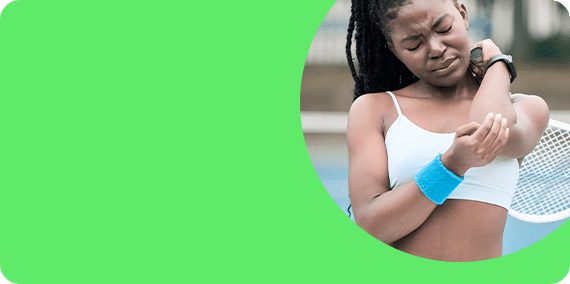
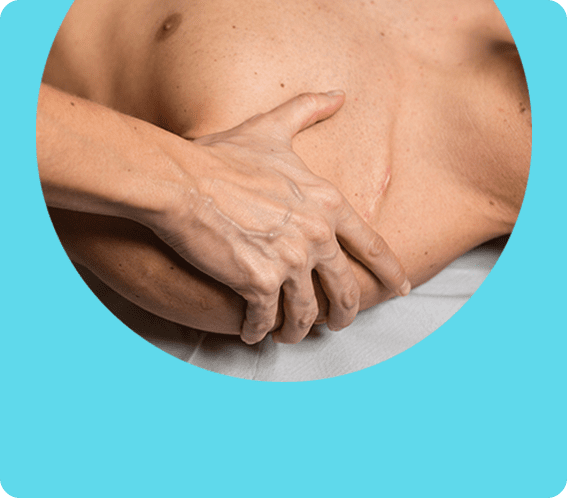
When you get up in the morning and go to the bathroom to brush your teeth, do you notice a stabbing, sharp pain near your heel? Does the pain go away once you have a chance to walk around? If so, you could have plantar fasciitis. According to the American College of Foot and Ankle Surgeons, this painful condition is quite common. About two million people suffer from plantar fasciitis every year, and almost 10% of all people will experience the condition at least once in their life.
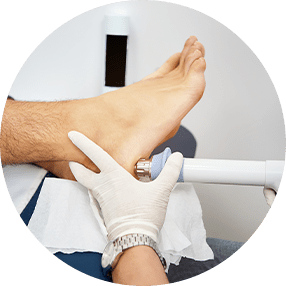
This common foot issue happens when the plantar fascia - a fan-shaped tissue near your heel - gets inflamed. The plantar fascia is a thick strip of connective tissue that links your toes to your heel bone, helping to preserve the arch of your foot. When this band is strained, it causes intensely sharp pain, usually in the morning when you wake up and plant your feet on the floor.
Most folks ignore plantar fasciitis because the pain eventually goes away throughout the day. However, if left untreated, plantar fasciitis can lead to weakness and chronic pain, which may affect daily walking.
Some causes of plantar fasciitis include:
The short answer to this question is not really. Patients with plantar fasciitis will ice the affected area with little-to-no relief since they spend so much time on their feet. It's hard to rest an achy heel if you've got a job that requires you to be on your feet. Anti-inflammatory meds like Advil don't work all that well, either. They may provide temporary pain relief, but in terms of a long-term solution, taking these drugs will cause major side effects.
Book AppointmentWhen more conservative treatment options like ice and over-the-counter meds don't work, most doctors turn to ultra-expensive orthotics, steroid injections, or invasive surgery. For the average person, those options fail on all fronts, as they carry risks for side effects and may even cause the issue to worsen.
Instead of going under the knife or changing their daily routines, many people suffering from plantar fasciitis are turning to Softwave therapy for relief.
During a shockwave therapy session, our expert providers use a special probe to deliver pressure waves to inflamed tissue. These waves trigger natural healing processes causing new blood vessels to form. In turn, oxygen is supplied to the affected area, reducing inflammation and causing healthy cells to regenerate. Shockwave therapy also produces collagen, which is crucial for connective tissue health.
With just a few visits, many patients find long-term relief from plantar fasciitis without relying on strange drugs or harmful surgeries.
Living with knee pain is just miserable. From knee tendonitis to osteoarthritis, knee pain can prevent you from enjoying activities and affect your day-to-day life. Your knee is a joint comprised of cartilage, bone, ligaments, and fluids. Tendons and muscles within the knee help the joint move. When one of these crucial knee structures is hurt or compromised, it results in knee pain and long-lasting knee problems. This, in turn, leads to difficulty walking at best and debilitating knee issues at worse.
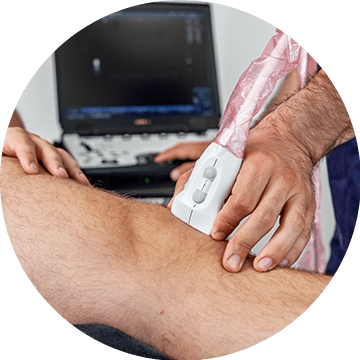

If you're an active person or somebody who plays sports often, you're probably all too familiar with knee pain - especially common conditions like patellar tendinopathy. Also called "jumpers knee," this issue happens at the patellar tendon, which is found on the front of the knee just under the knee cap. When living with this condition, most patients experience pain around the kneecap or lower down on the leg around the tibia.
In addition to injuries and issues like jumper's knee, everyday wear and tear will cause knee pain over time. With time, this knee pain can develop into arthritis. If your knees are swollen, painful, or stiff, you may have arthritis in your knees. Regardless of the kind of knee pain you're experiencing, treatment options have been limited to agonizing surgeries and addicting pain medications. But that all changes with shockwave therapy for knee pain in Charleston, SC.

Though no two knee pain problems are exactly the same, shockwave therapy has been shown to be highly effective for knee pain. In fact, many patients at Elite Healthcare Physical Medicine find relief after just one session. Many times, sessions can be completed in as little as 30 minutes. So if you want to find relief for knee pain on your lunch break, that's definitely possible.
As is the case with plantar fasciitis, Softwave therapy works by sending sound wave and low-energy impulses to the affected area of your knee. These pulses stimulate your body's healing factors, which can help regenerate and repair damaged tendons and tissues. Softwave therapy for knee pain is especially promising for people who have tried other treatments - like surgery and pain meds - with disappointing results.
Benefits include:
Several studies and reviews prove that Softwave therapy can be very beneficial for people suffering from knee pain problems like jumper's knee. A study involving 66 patients with knee pain found that they enjoyed a significant improvement in their reported pain levels with Softwave therapy. In fact, knee pain was reduced by nearly 50% after a single month. When combined with other regenerative and physical therapy treatments at Elite Healthcare Physical Medicine, your days of living with knee pain are numbered.
Book AppointmentHere's a fact for you to consider: Every joint that you have in your body plays a part in your day-to-day life. But when we think of joint issues, we typically jump to knee issues. However, your knees aren't the only joints in your body to go through wear and tear. Your shoulders experience just as much, if not more, wear and tear than your knees. We put a strain on our shoulders just about every time we use or move our arms. Our shoulders play a pivotal part in living a normal life. When they begin to deteriorate over time due to age or overuse, it creates a litany of painful problems.
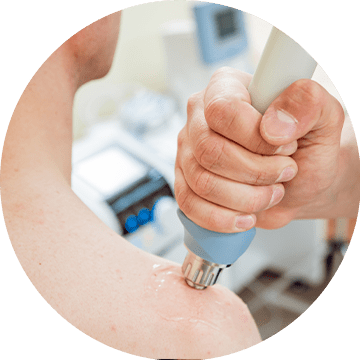

There are many causes of shoulder pain, like deterioration, inflammation, and trauma. Of the many painful shoulder conditions affecting Americans yearly, rotator cuff tendonitis and arthritis are very common. Also called calcific tendinitis, rotator cuff pain is caused by built-up calcium deposits on the shoulder's tendons, which connect your rotator cuff to nearby muscles and bones. This painful condition is usually linked to sports, like basketball and volleyball, or in professions requiring repetitive movements, like in the plumbing industry.
Some common symptoms of shoulder pain and rotator cuff tendinitis include:
Though strengthening exercises and some medications provide temporary relief for shoulder pain, they're not meant as long-term solutions. Luckily, Softwave therapy for rotator cuff pain in Charleston, SC, can help.
Shockwave therapy has been shown to work wonders for shoulder pain. Low-intensity shockwaves break up calcium deposits and jumpstart your body's healing processes, stimulating blood flow and healthy cell growth. Shockwave treatment is especially effective for long-term shoulder pain since it releases stem cells, sends growth factors to the affected area, and boosts capillary production. Shockwave therapy has also been shown to break down scar tissue and eliminate trigger points, all of which decrease shoulder pain. This relief is most often long-lasting, unlike other treatments like medications and injections.
Many studies support the efficacy of Softwave therapy for shoulder conditions like rotator cuff pain and calcific tendonitis of the shoulder. In a study of 84 patients living with long-term rotator cuff tendonitis, participants in the treatment group saw a significant decrease in the intensity of their shoulder pain. Another study related to shockwave therapy for calcific tendonitis found that 86.6% of patients experienced fewer calcifications.
If you're having to live with rotator cuff pain or another type of shoulder issue, choosing Softwave therapy may be your best course of action.
Book AppointmentWhether you're sick of living with intense heel pain from plantar fasciitis, the mobility issues associated with knee pain, or the day-to-day struggles of rotator cuff degeneration, you'll find hope at Elite Healthcare Physical Medicine. Unlike some medical clinics, our team of doctors and specialists focus on an integrative, multidisciplinary approach to healing. Instead of relying on addictive medications and invasive surgeries, we prefer to address the underlying causes that our patients face.
We combine several all-natural pain relief therapies so that your shoulder pain, knee pain, joint pain, and foot pain go away for good. We resolve pain by using healing treatments that restore function and improve mobility for the long term. Our state-of-the-art regenerative medicine treatments, used hand-in-hand with proven chiropractic techniques, will stimulate your body's healing power from within. If your pain is related to muscles, nerves, and bones, our doctors can help you overcome discomfort, injury, or medical conditions affecting these systems.
If you've been unable to resolve your pain or have become dependent on painkillers to cope, Softwave therapy may be the natural solution you need. It all starts with a quick call to our office, so we can begin to understand your needs. When you come for your first visit, our doctors will find the personalized treatment you need so that you can manage your pain in a non-invasive and drug-free environment manner.
Book Appointment